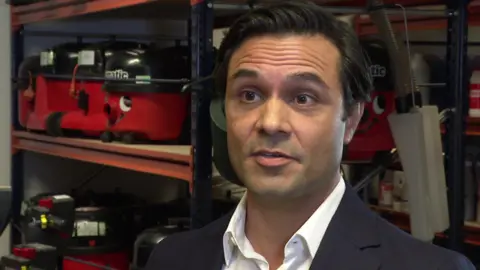UK bosses will be able to fire new recruits after a warning of poor performance during a nine-month probation period, in a last-minute concession to business that will soften the impact of Labour’s flagship reforms to workers’ rights.
Draft legislation published on Thursday sets out a swath of changes to UK employment law that together constitute the biggest overhaul in a generation.
The Employment Rights bill will give shape to 28 of the roughly 70 measures promised by Sir Keir Starmer’s party before the election in its “Plan to Make Work Pay”.
These include a clampdown on zero hour contracts, stronger rights to work flexibly if feasible and curbs on employers’ use of fire and rehire tactics.
But the most contentious provision, day one protection against unfair dismissal, will be softened considerably under government proposals for a statutory probation period during which employers will have to follow only a “lighter touch” process to justify a dismissal.
Ministers are planning to consult for several months on the maximum length of the probation period but are already minded to opt for nine months, according to officials.
Many of the measures will be subject to further consultation to thrash out the details of secondary legislation needed to implement them, while other measures will be added to the bill at a later stage, or pursued separately in future by other means.
As a result, the majority of the reforms will not take effect any earlier than 2026, the government confirmed.
Angela Rayner, deputy prime minister, is presenting the package as a way to “boost pay and productivity” in an economy “riven with insecurity”. Paul Nowak, general secretary of the Trades Union Congress, the umbrella body for the UK labour movement, described it as a “seismic shift” that would improve working life for millions of people.
But businesses are alarmed at the cumulative impact of the reforms, and in particular by the scrapping of the current two-year qualifying period for unfair dismissal.
Tina McKenzie, policy chair at the Federation of Small Businesses trade body, described the bill as “a rushed job, clumsy, chaotic and poorly planned”.
The government has said the changes will help more than 1mn people working on contracts with no or few guaranteed hours, who will gain new rights to a contract reflecting their regular hours, and to notice or compensation when shifts are cancelled.
An extra 30,000 fathers will benefit from a right to take paternity leave from the first day in a job, scrapping the current qualifying period.
The bill will also broaden coverage of statutory sick pay, strengthen trade unions’ role in the workplace, pave the way for collective bargaining in the care sector, establish a new agency to enforce employee rights and strengthen protections at work for new mothers, among other changes.
A nine-month probation period is longer than Rayner initially envisaged and follows intense lobbying from businesses that had the backing of business secretary Jonathan Reynolds and chancellor Rachel Reeves.
While employers will still need to show they have acted fairly in dismissing a new hire, they will not need to follow the lengthy process typical at present when dismissing an employee of more than two years tenure. Giving written notice could suffice, officials suggested.
Details of how a probation period works will be subject to consultation, however, and will need to be set out in both secondary legislation and a separate code of conduct. This means the day one right will take effect in autumn 2026 at the earliest.
Other consultations will look at how to determine workers’ regular working pattern, in order to offer them an appropriate contract, and how to ensure businesses only use fire and rehire when they are at genuine risk of going bust.








































































































































You must be logged in to post a comment Login